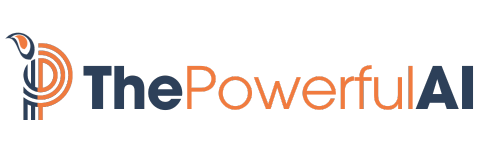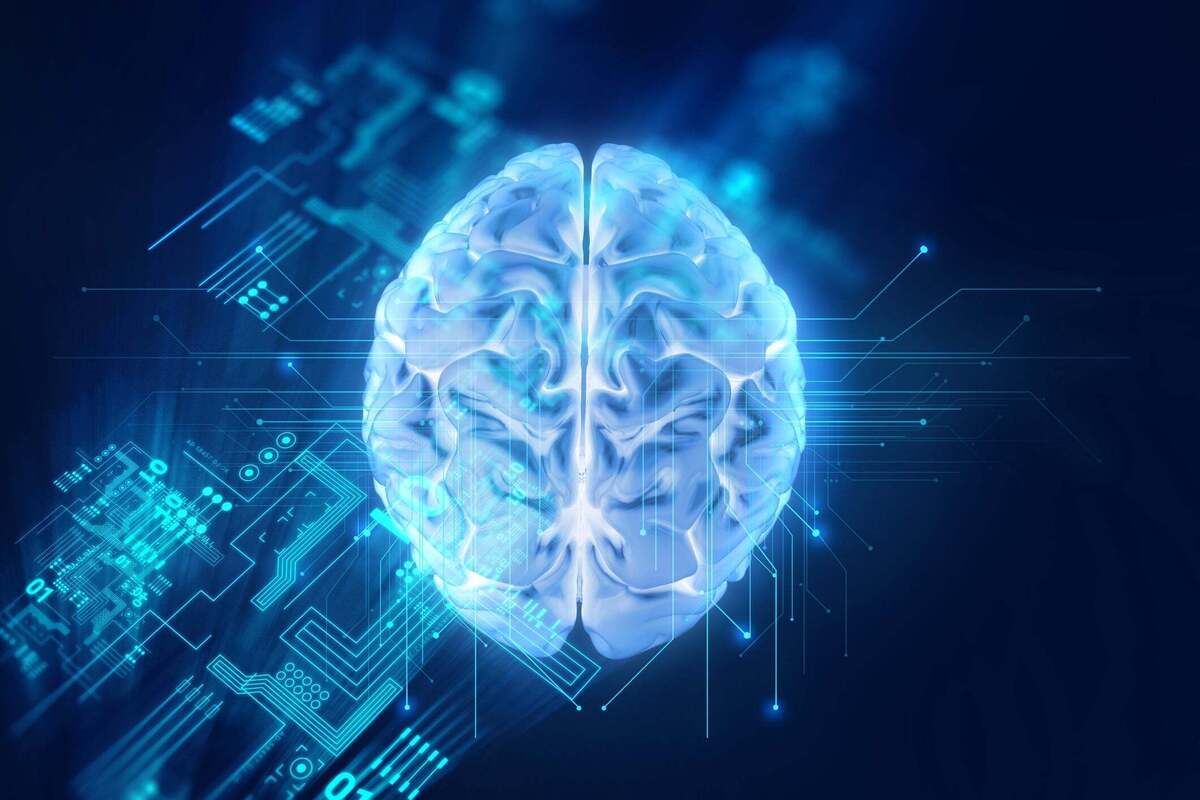Lack of transparency, bias and discrimination, privacy concerns, ethical dilemmas, security risks, concentration of power, dependence on AI, job displacement, protection of online data privacy, prospect of job loss, opportunity for students to cheat, and overall human obsolescence are the 11 artificial intelligence issues that you should worry about. These concerns are expressed by clients of all ages, highlighting worries about the lack of protection for online data privacy, the possibility of job loss, opportunities for cheating, and even the potential for overall human obsolescence.
The rise of “AI Anxiety” has prompted the need for managing these concerns effectively. It is essential to address these issues to ensure responsible and ethical AI development and usage.

Credit: www.wired.co.uk
Concerns About Ai
Concerns about AI are on the rise, as individuals worry about a lack of transparency, bias and discrimination, privacy concerns, ethical dilemmas, security risks, concentration of power, dependence on AI, and job displacement. These concerns also include issues such as the lack of protection for online data privacy, the potential for job loss, and the possibility of human obsolescence.
Lack Of Transparency
One of the major concerns surrounding artificial intelligence (AI) is the lack of transparency in its decision-making processes. AI algorithms are often complex and difficult to understand, making it challenging to identify how and why certain decisions are made. This lack of transparency raises questions about accountability and trust. Users and stakeholders need to have visibility into how AI systems operate to ensure that they are fair, unbiased, and in compliance with ethical standards.
Bias And Discrimination
AI systems are not immune to biases and discrimination that exist in society. They learn from the data they are trained on, which can include biased or discriminatory information. As a result, AI algorithms can inadvertently perpetuate and amplify existing biases, leading to unfair outcomes. This issue underscores the need for diverse and representative data sets and ongoing monitoring and evaluation of AI systems to prevent bias and discrimination.
Privacy Concerns
The increasing use of AI in various applications raises concerns about the privacy of personal data. AI systems often rely on collecting and analyzing large amounts of data to make predictions and decisions. This raises questions about who has access to this data, how it is stored and secured, and the potential for misuse or unauthorized access. Stricter regulations and data protection measures are necessary to address these privacy concerns and ensure the responsible use of AI.
Ethical Dilemmas
AI technologies can present complex ethical dilemmas. For example, autonomous vehicles need to make decisions in situations where there are no clear-cut answers, such as choosing between protecting the lives of passengers or pedestrians. These ethical dilemmas require careful consideration and ethical frameworks to guide the development and deployment of AI systems. Balancing the benefits and risks of AI is crucial to ensure that these technologies align with societal values and norms.
Security Risks
The increasing reliance on AI introduces new security risks. AI systems can be vulnerable to attacks and manipulation, potentially leading to unauthorized access, data breaches, or the disruption of critical systems. Adversarial attacks, where malicious actors exploit vulnerabilities in AI algorithms, highlight the need for robust security measures to protect against these risks.
Concentration Of Power
As AI technologies become more advanced, concerns about the concentration of power in the hands of a few dominant companies or organizations arise. The ability to collect and analyze vast amounts of data gives these entities a competitive advantage and the potential to control and influence various aspects of society. Ensuring a diverse and competitive AI landscape can help prevent undue concentration of power and foster innovation.
Dependence On Ai
While the capabilities of AI are impressive, there is a concern about excessive dependence on these technologies. Blind reliance on AI systems without human oversight can lead to overreliance and a lack of critical thinking. It is essential to strike a balance between leveraging the benefits of AI and maintaining human judgment and control.
Job Displacement
The automation capabilities of AI can lead to job displacement in certain industries. As AI technologies become more sophisticated, routine tasks that were previously performed by humans may be automated, potentially resulting in unemployment and economic inequality. Reskilling and education initiatives are necessary to address the potential impact of AI on the workforce and ensure a smooth transition.
Ai Risks And Challenges
Artificial intelligence presents various risks and challenges that should be a cause for concern. These include the lack of transparency, bias and discrimination, privacy concerns, ethical dilemmas, security risks, concentration of power, dependence on AI, job displacement, and more. It is important to address these issues to ensure the responsible and ethical use of AI technology.
Artificial Intelligence (AI) has revolutionized various industries and brought numerous advancements. However, it is crucial to acknowledge the risks and challenges that come with this technology. Understanding these concerns is essential for ensuring the responsible and ethical use of AI. In this section, we will discuss eleven significant AI risks and challenges that should be on our radar.
Consumer Privacy
AI systems often rely on vast amounts of data to function effectively. However, this raises concerns about consumer privacy. With the potential for data breaches and misuse, maintaining consumer privacy becomes critical. Businesses and policymakers must prioritize data protection and establish robust regulations to safeguard individual privacy.
Biased Programming
One of the AI risks that have garnered significant attention is biased programming. AI systems often learn from existing data sets, which may contain biases. This can result in algorithmic bias and discriminatory outcomes, impacting various aspects of society. Eliminating bias in AI algorithms and promoting fairness and equality is of utmost importance.
Danger To Humans
While AI brings immense benefits, there is still a concern about the potential danger it poses to humans. As AI becomes more sophisticated, there is a possibility of unintended consequences or misuse, leading to physical harm. Ensuring the development of AI systems with proper safety measures and ethical guidelines is crucial to mitigate this risk.
Legal Regulation
The rapid advancement of AI has outpaced legal regulations. This poses challenges in terms of accountability and responsibility for AI technologies. Establishing comprehensive legal frameworks and regulations is necessary to address issues related to liability, transparency, and ethical considerations in AI development and deployment.
Automation-spurred Job Loss
Automation-powered by AI technology can streamline processes and increase efficiency. However, there is a fear that widespread adoption of AI could lead to job displacement and economic disruptions. Proactively addressing these concerns through retraining programs, skill development initiatives, and implementing new job opportunities is crucial to minimize the negative impact on the workforce.
Deepfakes
Deepfakes, manipulated multimedia content created using AI algorithms, raise significant concerns about misinformation and its potential social and political impact. This poses threats to public trust, privacy, and even national security. Developing robust detection methods and educating individuals on recognizing deepfakes are necessary measures to combat this AI risk.
Privacy Violations
AI systems process vast amounts of personal data, raising concerns about privacy violations. Instances of data breaches and misuse can have severe consequences for individuals and society as a whole. Strengthening data protection measures, implementing strict privacy regulations, and promoting transparency in AI systems are essential to address this risk.
Algorithmic Bias
Algorithmic bias is another critical challenge in AI. AI algorithms can unintentionally perpetuate existing biases and inequalities, amplifying societal prejudices. Efforts must be made to eliminate bias in AI algorithms by improving data quality, diverse representation in training data, and regular audits of AI systems for fairness and inclusivity.
Socioeconomic Inequality
AI adoption has the potential to exacerbate socioeconomic inequality. Access to AI tools and technologies may not be evenly distributed, leading to a digital divide. Addressing this challenge requires proactive measures such as promoting equitable access to AI resources, ensuring affordability, and providing equal opportunities for all segments of society to benefit from AI advancements.
Market Volatility
The integration of AI into financial markets raises concerns about market volatility. AI-powered algorithms can make decisions at high speeds, potentially contributing to market instability and economic disruptions. Continuous monitoring, robust risk management practices, and regulations are necessary to maintain stability and prevent unintended consequences.
Weapons Automatization
As AI technology progresses, there is a risk of weapons automatization falling into the wrong hands. Autonomous weapons controlled by AI pose ethical and security concerns. International cooperation, legal frameworks, and responsible research and development are essential to prevent the misuse and proliferation of AI-powered weapons.
Uncontrollable Self-aware Ai
While the development of uncontrollable self-aware AI may seem like a sci-fi scenario, it is a legitimate concern. The potential emergence of AI systems that surpass human capabilities and gain self-awareness can pose significant risks. Establishing strict ethical guidelines, ensuring human oversight, and proactive research into safety measures are crucial to prevent potential hazards.
Ethical Issues With Ai
When it comes to artificial intelligence (AI), there are several legal and ethical considerations that need to be addressed. As AI technologies become increasingly sophisticated, the security risks associated with their use and the potential for misuse also increase.
Security Risks
One of the major concerns with AI is the security risks it poses. AI systems have the potential to be hacked or manipulated, leading to data breaches and unauthorized access to sensitive information. This can have serious implications, especially if AI is being used in critical sectors such as healthcare or finance.
Concerns About Market Power
Big AI companies often have a significant amount of market power, which can create concerns about monopolies and unfair competition. These companies may have the ability to manipulate markets, control prices, and stifle innovation. It is important to have regulations in place to ensure fair competition and prevent the concentration of power in the hands of a few.
Privacy Issues
AI systems rely on vast amounts of data to function effectively. However, this raises concerns about privacy. The collection, storage, and use of personal data by AI systems can infringe on individuals’ privacy rights. It is crucial to have proper safeguards and regulations in place to protect the privacy of individuals and ensure that AI is used responsibly.
Misuse And Fraud
Another ethical concern with AI is the potential for misuse and fraud. AI systems can be programmed to manipulate or deceive users, leading to fraudulent activities. Additionally, AI can be used for malicious purposes, such as creating deepfakes or spreading disinformation. It is important to establish clear guidelines and ethical standards to prevent such misuse.
Frequently Asked Questions On 11 Artificial Intelligence Issues You Should Worry About
What Are 3 Dangers Of Ai?
The dangers of AI include lack of transparency, bias and discrimination, privacy concerns, ethical dilemmas, security risks, concentration of power, dependence on AI, and job displacement. AI also raises concerns about the misuse, fraud, and scams in the real world.
The security risks associated with AI technologies and their potential for misuse continue to increase. Furthermore, concerns about AI include consumer privacy, biased programming, danger to humans, and unclear legal regulation. It is important to address these risks and ensure responsible use of AI technology.
What Should I Worry About With Ai?
When it comes to AI, there are several concerns to worry about. Lack of transparency, bias and discrimination, privacy concerns, ethical dilemmas, security risks, concentration of power, dependence on AI, and job displacement are all potential issues.
What Are The Biggest Concerns With Ai?
The biggest concerns with AI include lack of transparency, bias and discrimination, privacy concerns, ethical dilemmas, security risks, concentration of power, dependence on AI, and job displacement. Other worries include consumer privacy, biased programming, danger to humans, unclear legal regulation, misuse, fraud, scams, and overall human obsolescence.
Will Ai Take Over Humans?
AI will not take over humans because our unique abilities provide value that machines cannot match. Concerns with AI include job displacement, privacy violations, biased programming, and unclear legal regulation.
Conclusion
As artificial intelligence continues to advance, there are several issues that we should be concerned about. Lack of transparency, bias and discrimination, privacy concerns, ethical dilemmas, security risks, concentration of power, dependence on AI, and job displacement are just some of the areas where AI poses challenges.
It is important for us to address these issues and find solutions to ensure that AI is used responsibly and ethically to benefit society as a whole.





